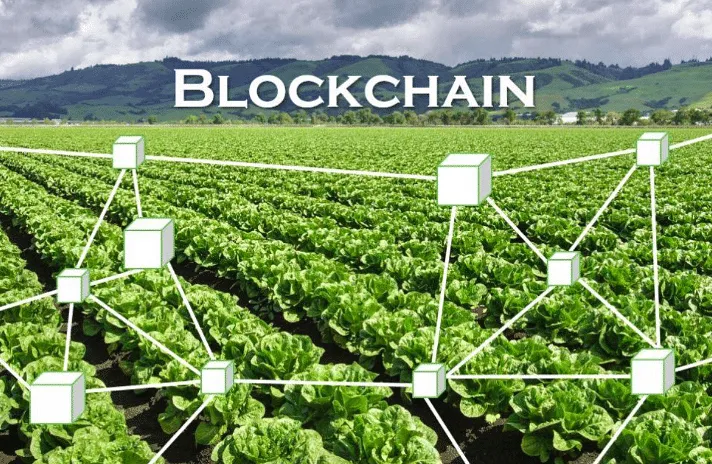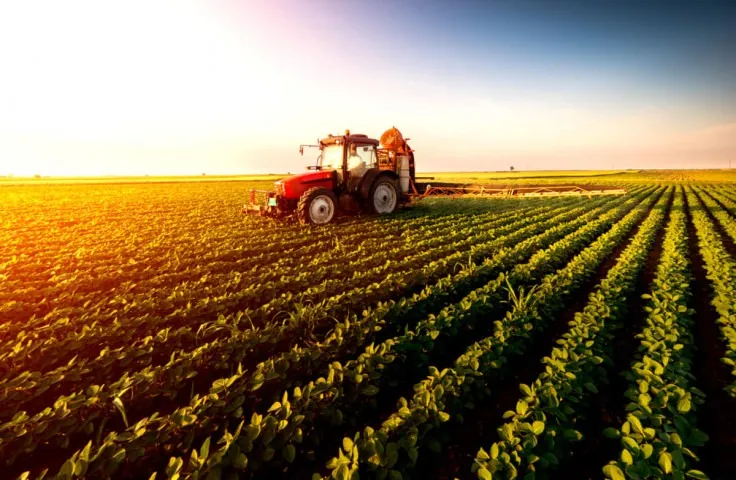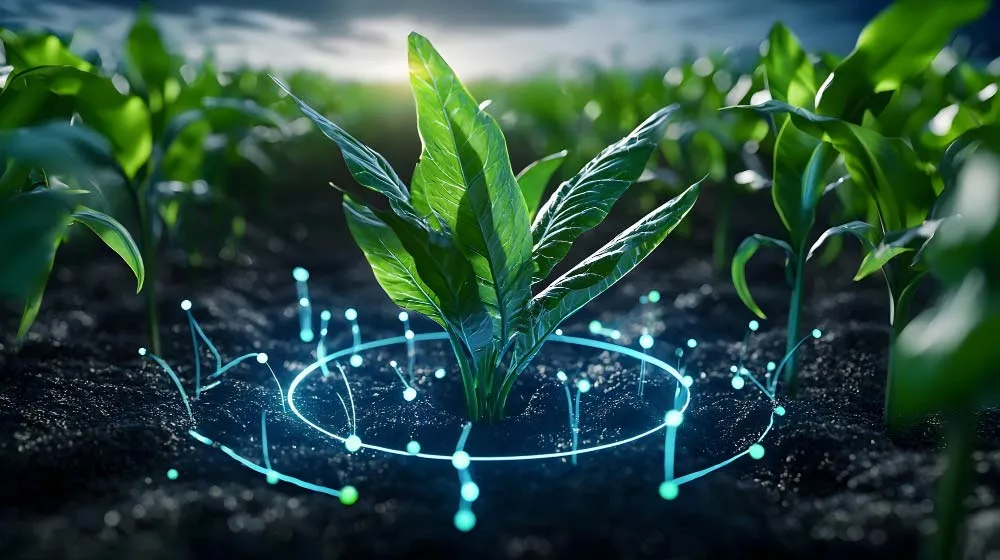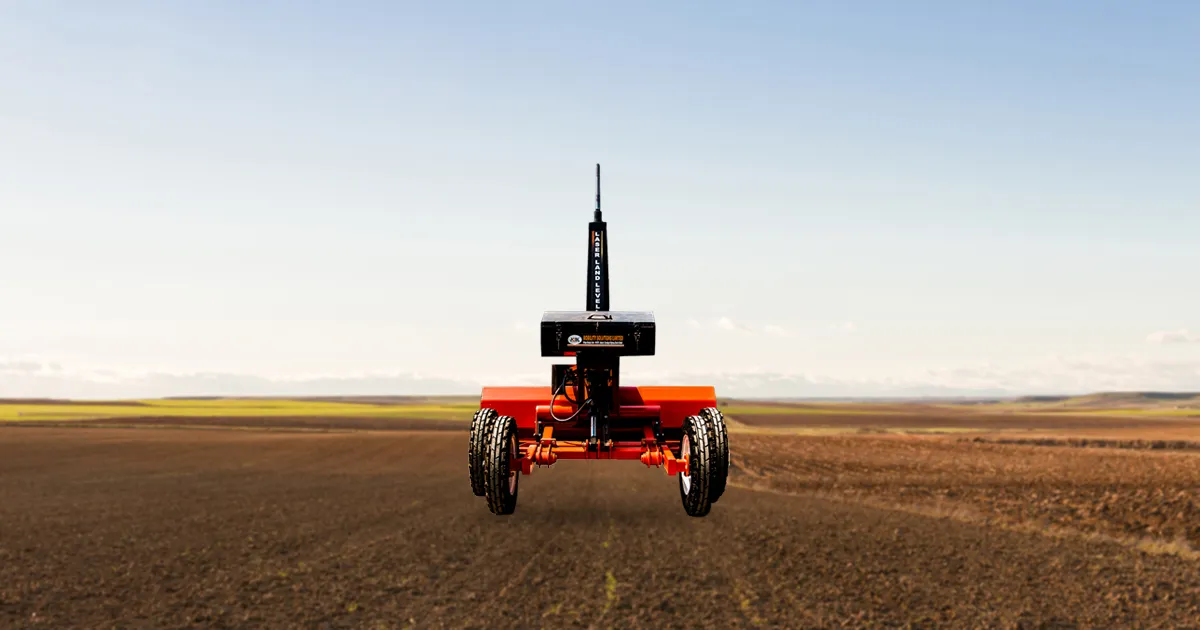Not too long ago, when farmers in Punjab sold their crops, they had no way of tracking where it went, who bought it, or how long it took to reach the final consumer. It was a system built on trust sometimes blind trust and middlemen. But something’s been quietly taking shape in the background, and it might just be a game changer, blockchain.
Same tech you hear about in banking or crypto. It’s now finding its way into the fields of Punjab. And while it’s not making headlines every day, its presence is starting to make a difference one harvest at a time.
What Is Blockchain?

Imagine this: as you keep a diary, every page you write is permanently locked. Nobody may change it; you can go back and view everything that occurred in the precise sequence. That is blockchain. It saves information about when a crop was planted, gathered, packed, and traded rather than personal notes, though.
This isn't magic. It's simply a safer way to keep information that cannot be modified.
Why Does This Matter to Farmers?
In a world where people care about where their food comes from, this is a big deal. Buyers especially outside India want to know if the food is clean, chemical-free, and honestly sourced.
For Punjab’s farmers, this means:
- More trust in their produce
- Better prices for quality
- Less power to middlemen
- Faster, transparent payments
The farmer gets credit where it's due. The buyer knows they’re getting what they paid for. And in between, everything is recorded.
It’s Already Started
You might be surprised, but pilots have already kicked off in Fazilka and Ludhiana. With help from the Punjab Mandi Board, a few farmers have started uploading crop information onto blockchain apps.
These aren’t massive tech rollouts they’re small, trial-based steps. But here’s what’s happening:
- A farmer logs his planting date and inputs.
- The harvesting date, pesticide info, and storage details get recorded.
- Once packed, the produce box gets a QR code.
- That code tells the buyer the full story no lies, no guessing.
Some exporters have started using this for kinnows and basmati rice, two crops Punjab is famous for.
Old Hands, New Tools: The Tech Transition in Punjab's Fields
Let’s be real, not every farmer is running around with a smartphone. But they don’t need to be tech wizards to make this work.
In many areas, younger family members help the older generation. Village volunteers have also stepped in to train folks in how to upload info, scan QR codes, and even check market prices.
In places like Patiala, Moga, and Sangrur, young farmers are becoming local “tech ambassadors,” helping their neighbours use these apps in real life. The shift is happening, slowly but surely.
For Exporters, This Tech Is Gold
Tough policies governing imported food exist in nations like Germany and the UK. They return items if they are unfamiliar with their source or growth method.
That is where blockchain benefits the farmers and exporters of Punjab. It gives solid proof that a basmati shipment from Amritsar or a crate of kinnows from Abohar meets global standards. And that opens up betterpaying markets abroad.
It’s not just about growing. It’s about showing.
Faster Money, Fewer Headaches
Ask any farmer, and they’ll tell you waiting for payment after selling their crop can be a nightmare. Sometimes it takes days. Sometimes weeks.
But with blockchain, the story changes.
- The buyer confirms the delivery.
- The record is updated instantly.
- Payment is processed quickly often within 24 to 48 hours.
No back and forth. No missing bills. Just straight up transactions.
Fighting Food Fraud & Building a Name
Let’s not pretend this doesn’t happen fake “organic” tags, duplicate packaging, mixing premium rice with cheaper varieties. Blockchain shuts that down.
Once produce is entered into the system, it can’t be changed or faked. Every step is logged. That means:
- Authentic products are protected
- Farmers and brands can build a name
- Consumers feel confident in what they’re eating
Punjab has the chance to become known not just for how much food it grows, but for how honestly it’s grown.
Government & Startups Are Pushing Too
The Punjab government isn’t doing this alone. It’s teaming up with agritech startups that build blockchain platforms for agriculture. Companies like CropIn, AgNext, and Agri10x are already working with FPOs (Farmer Producer Organizations) and co-ops.
These startups offer:
- Mobile apps in local languages
- Training camps in rural areas
- Easy tools to track and sell produce
And it’s working small pilot programs are growing into district level movements.
There Are Roadblocks
This isn’t easy.
- Internet access in some villages is still weak.
- Not everyone owns a smartphone.
- Some farmers don’t trust new systems right away.
And yes, implementing this across all of Punjab’s crops and markets will take time. But the steps being taken now will lay the groundwork for bigger change later.
What’s Coming Next?

Over the next year, the government plans to:
- Expand blockchain use to more crops
- Integrate crop insurance and subsidy tracking
- Offer incentives for exporters using verified supply chains
- Work with cooperatives to bring small farmers together under digital umbrellas
It’s a slow build. But once in place, this could change how farming works not just in Punjab, but across India.
The Ground Beneath Is Changing
When you walk through a farm in Punjab today, you might still see things the way they’ve always been. Same tools. Same rhythm. Same hardworking people.
But beneath that soil, something new is growing digital trust.
It’s not about making farming flashy. It’s about making it fairer, cleaner, and smarter. With blockchain quietly taking root, Punjab’s farmers may soon be known not just for what they grow, but for how clearly they can prove it.
And that might be the most powerful seed planted yet.













